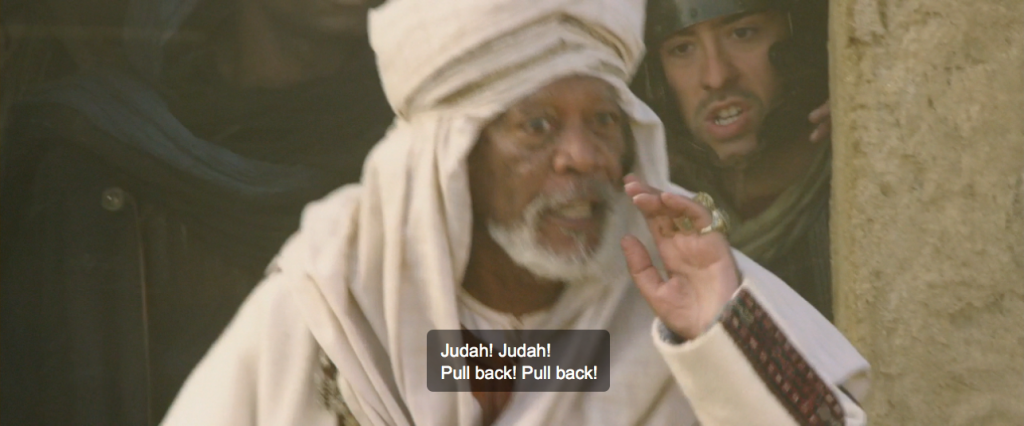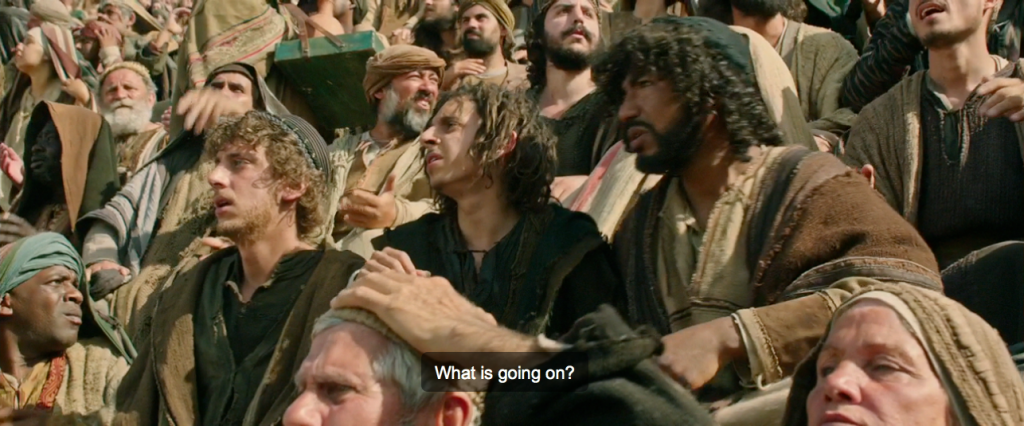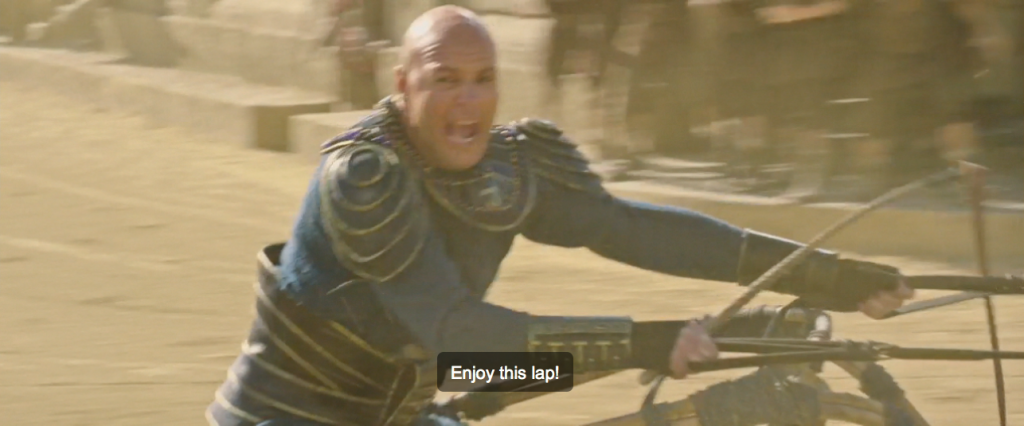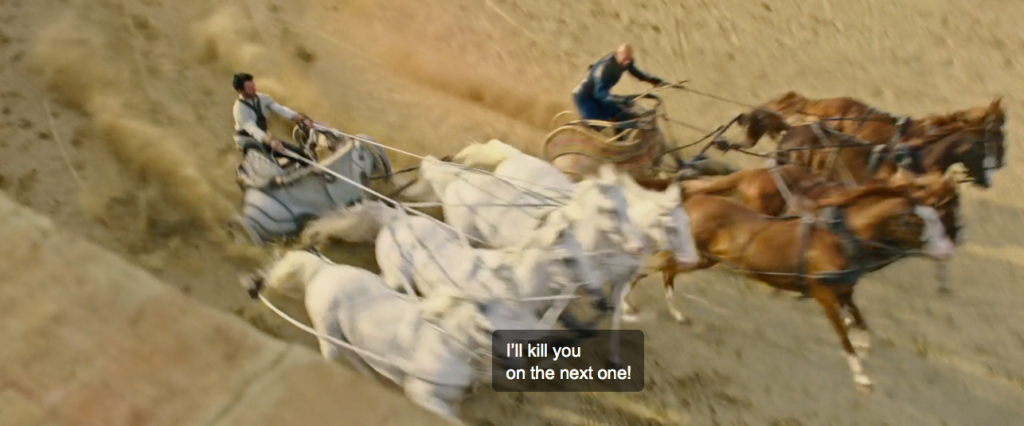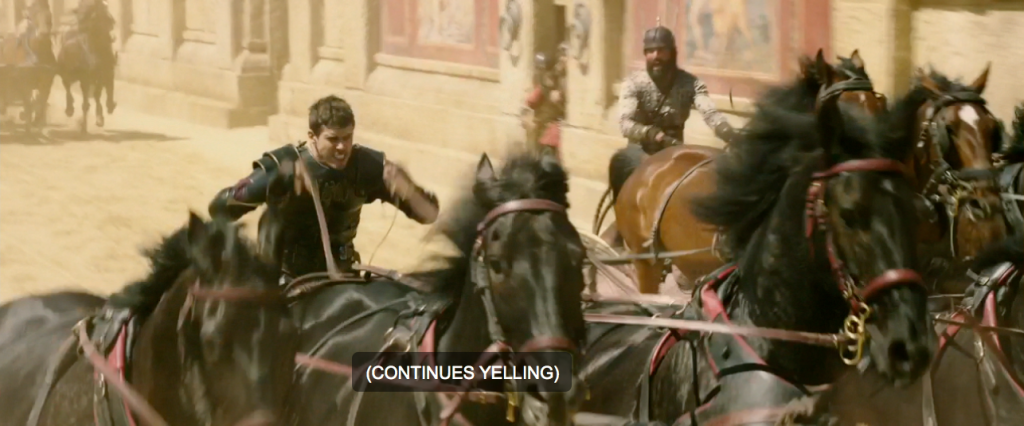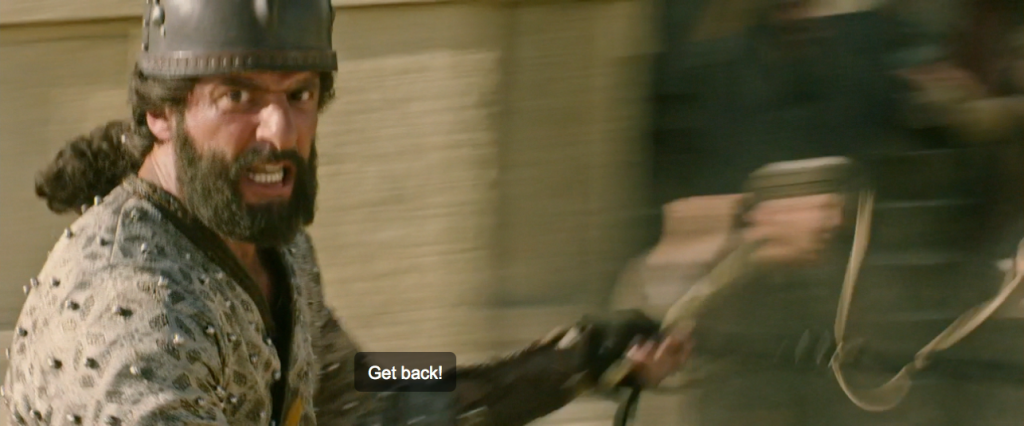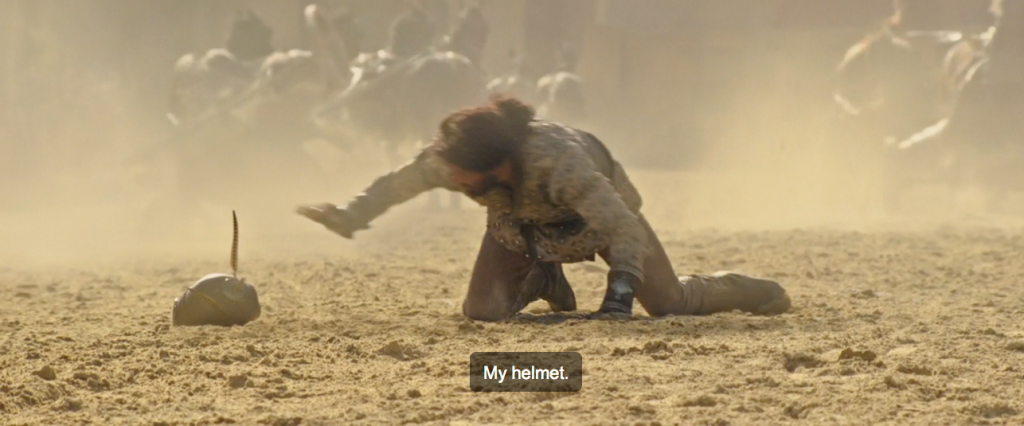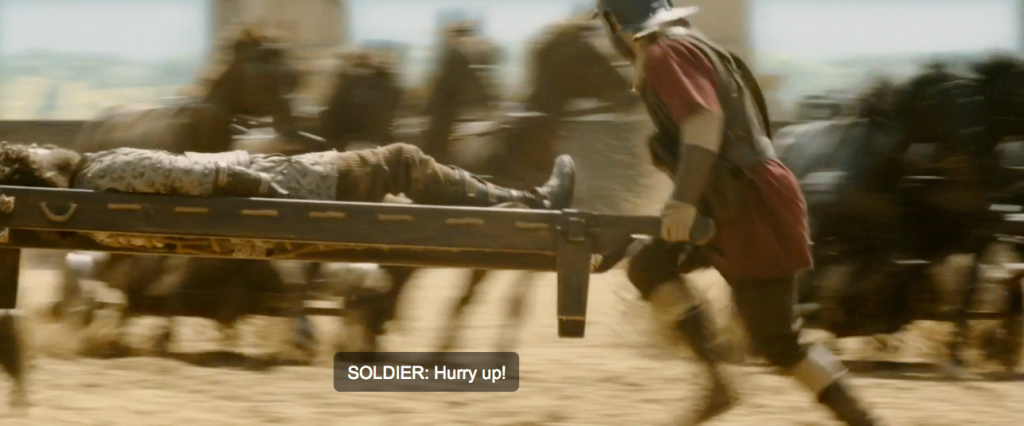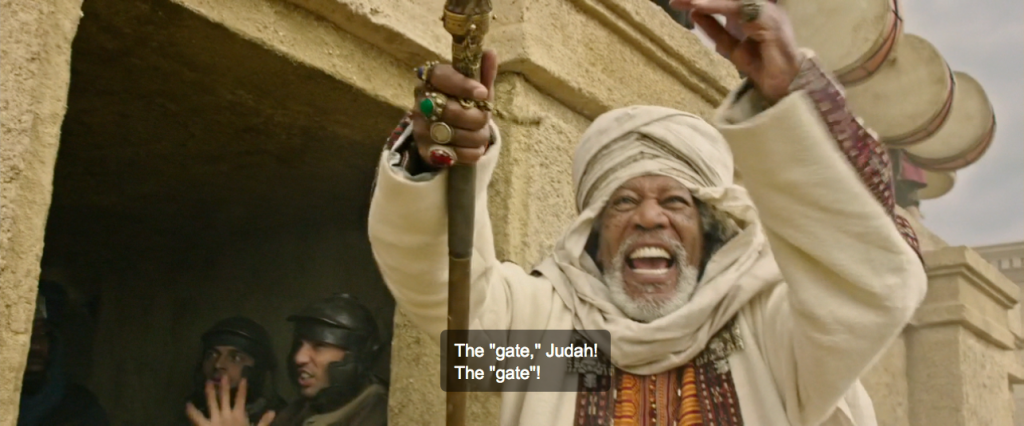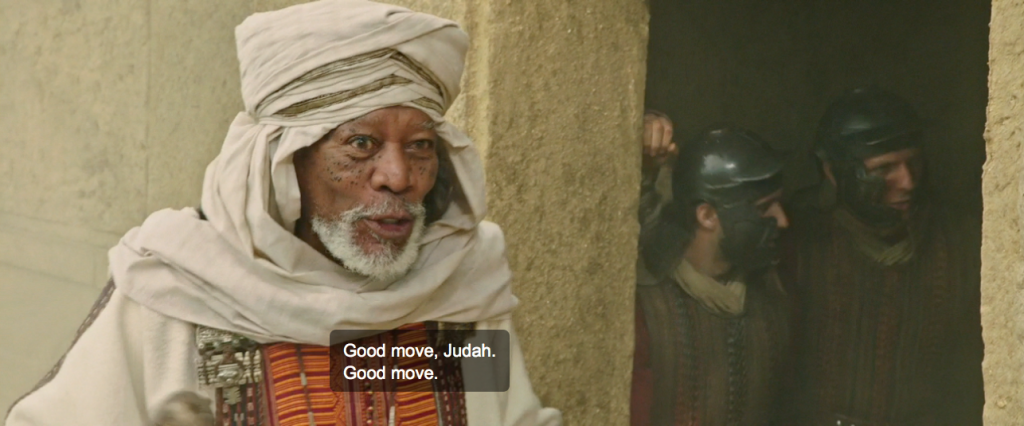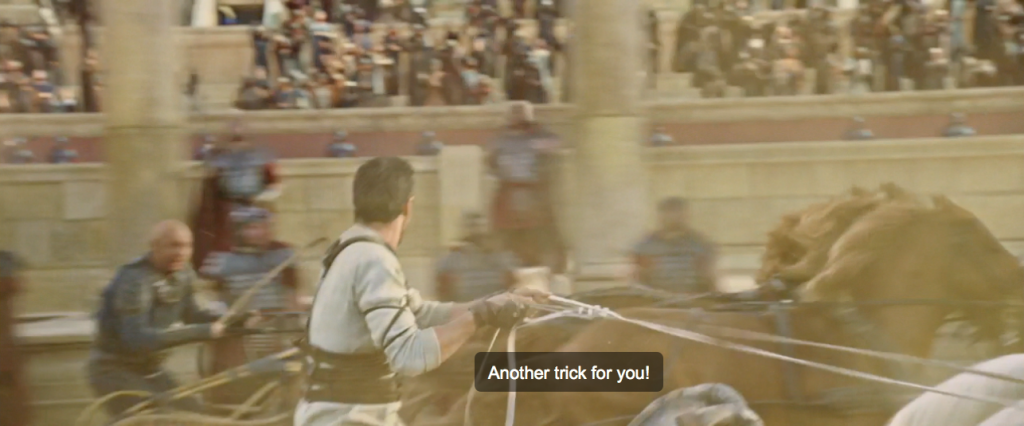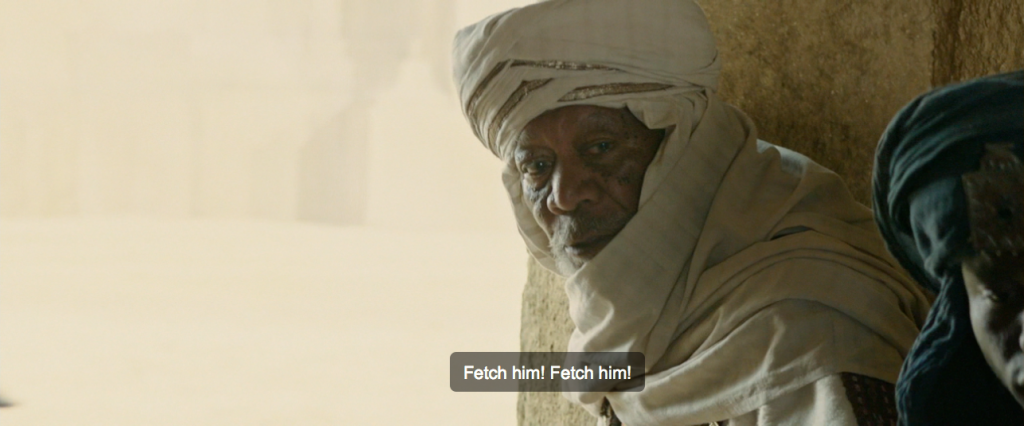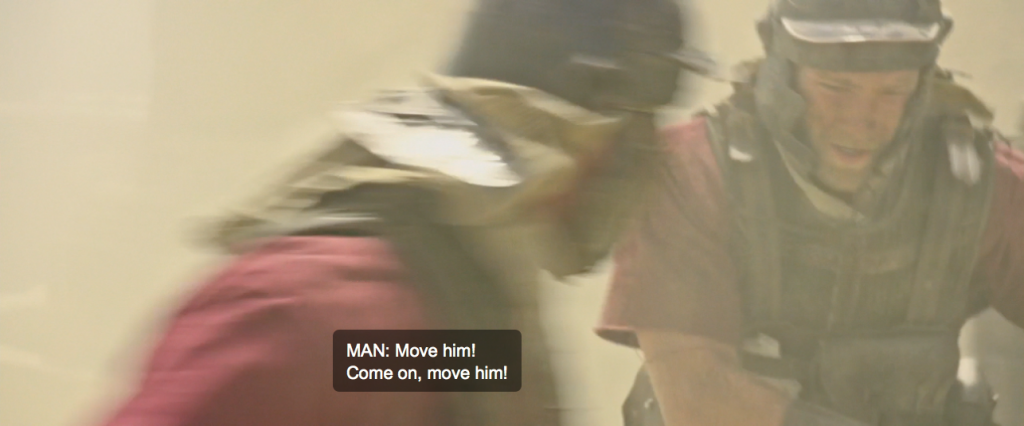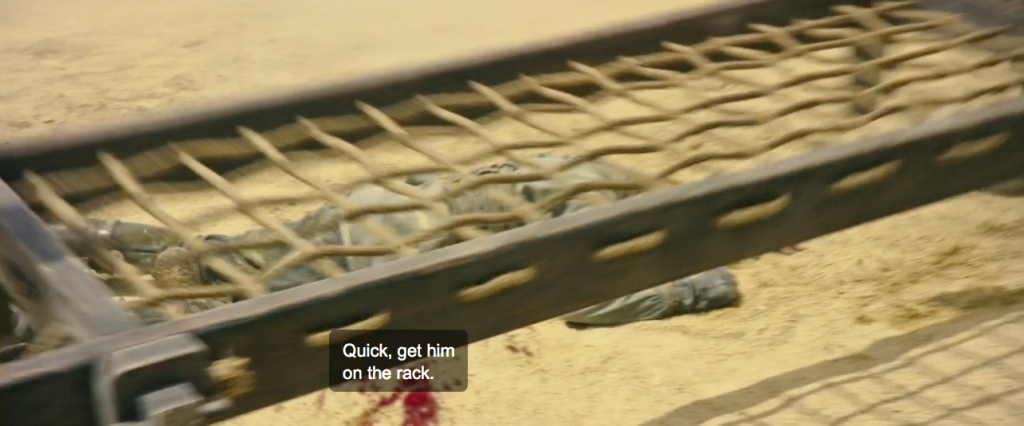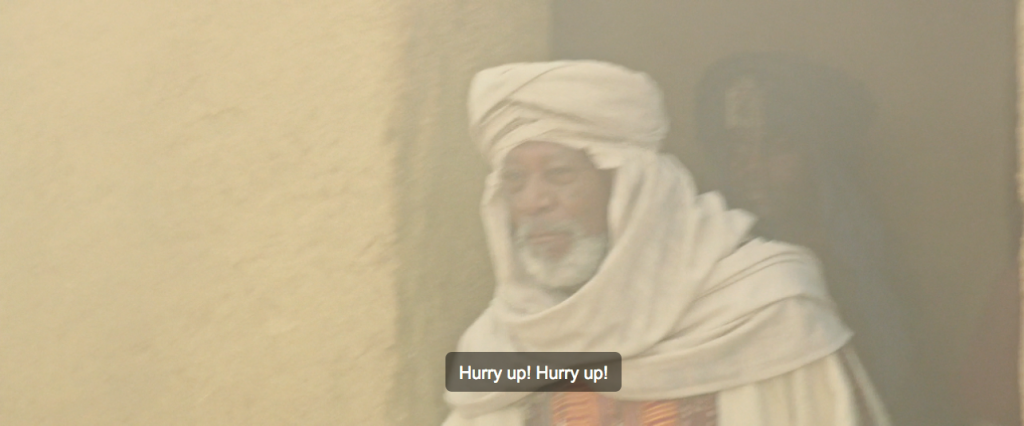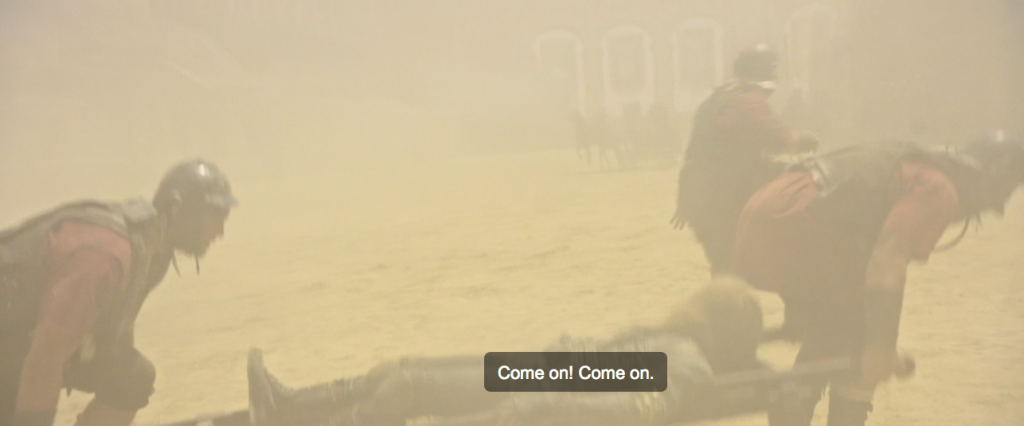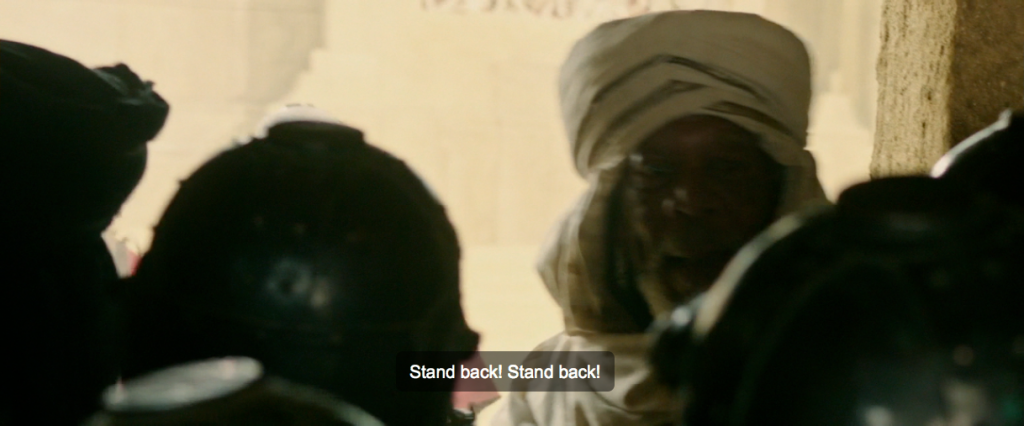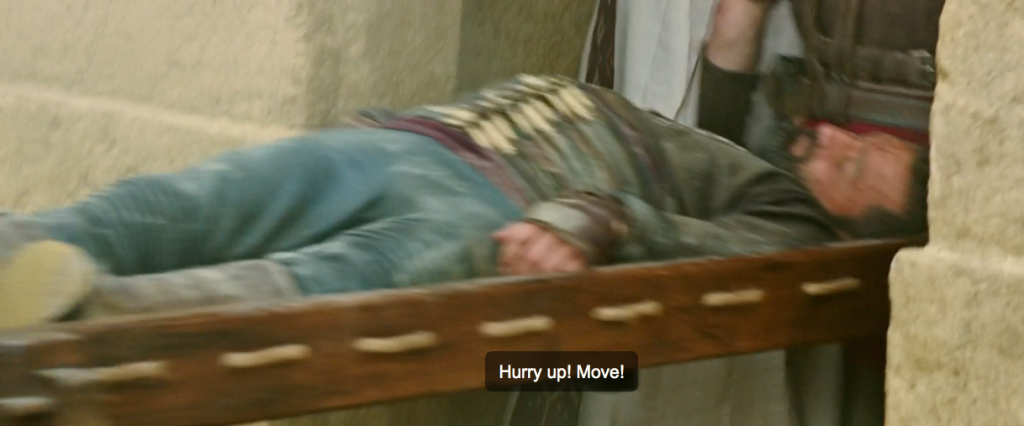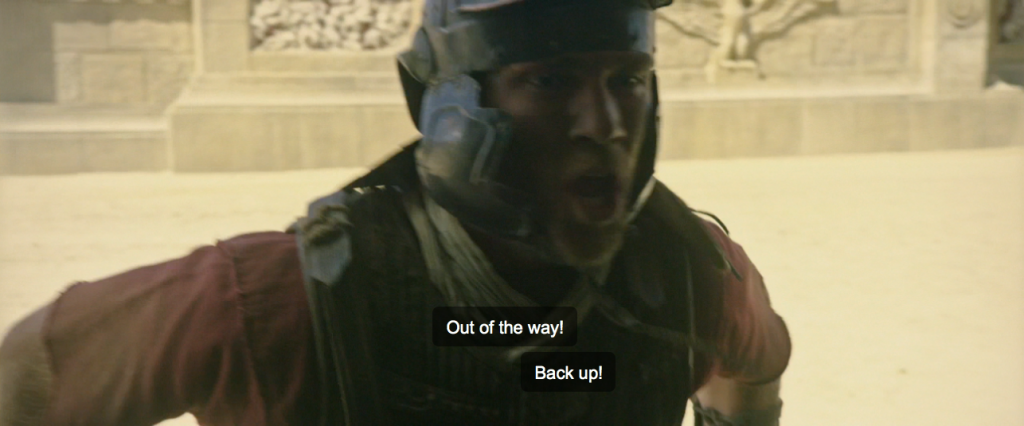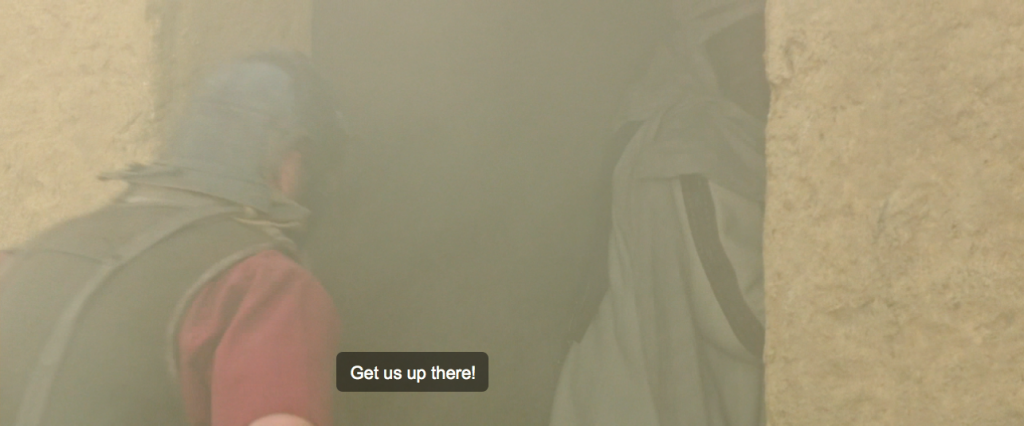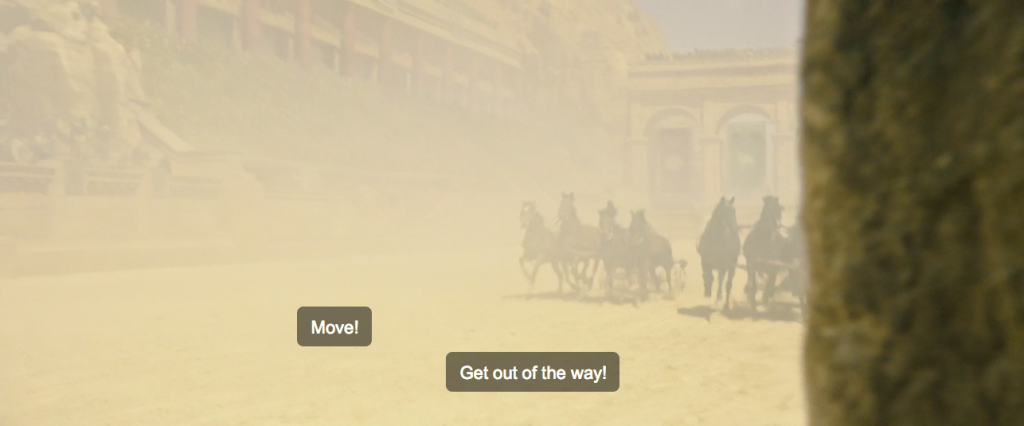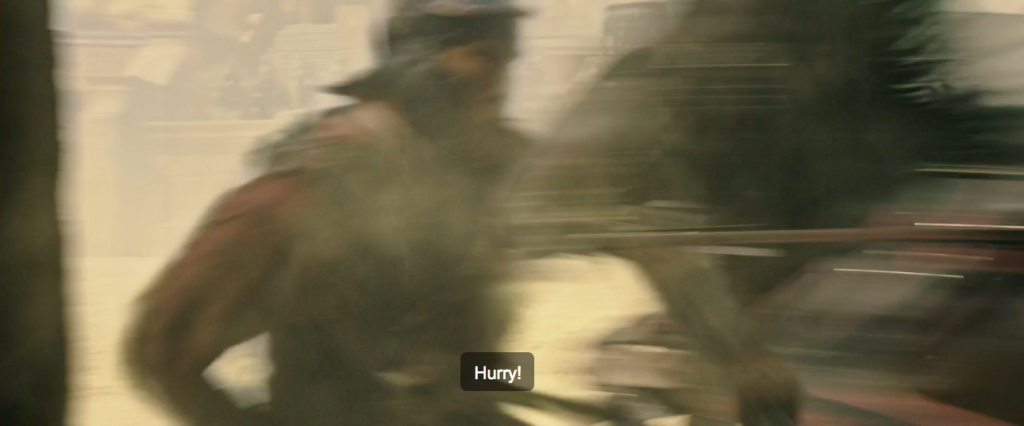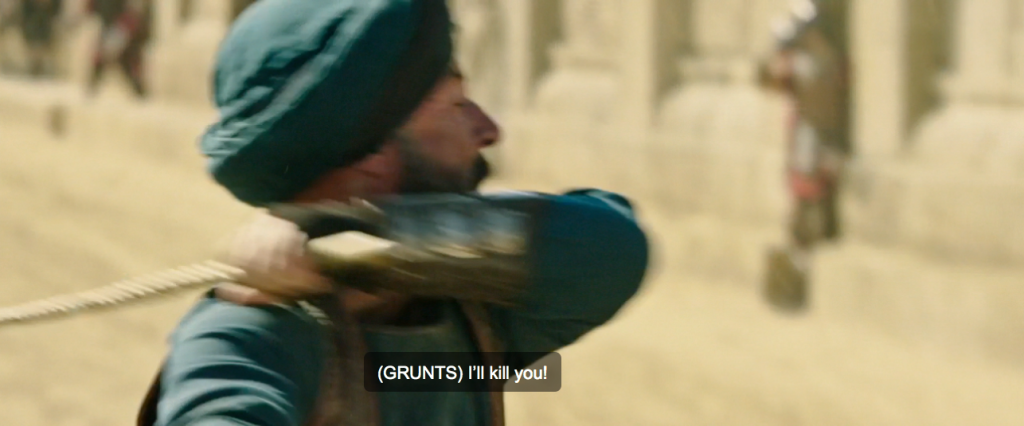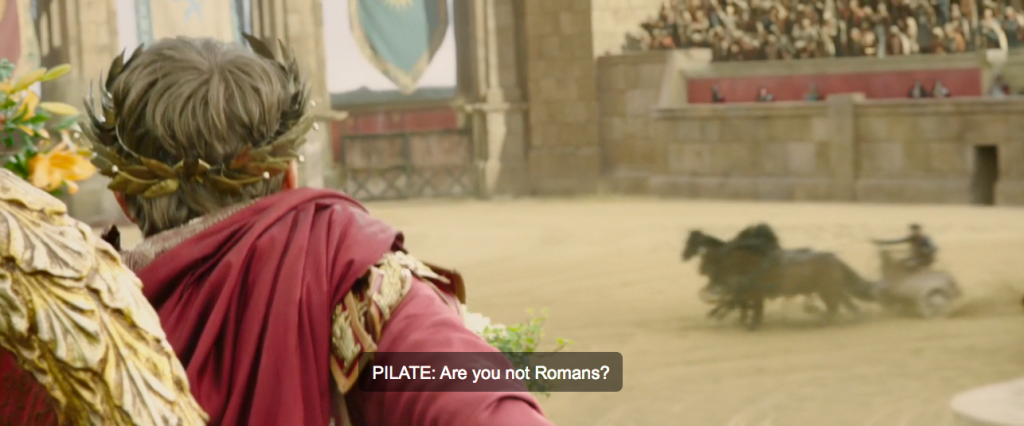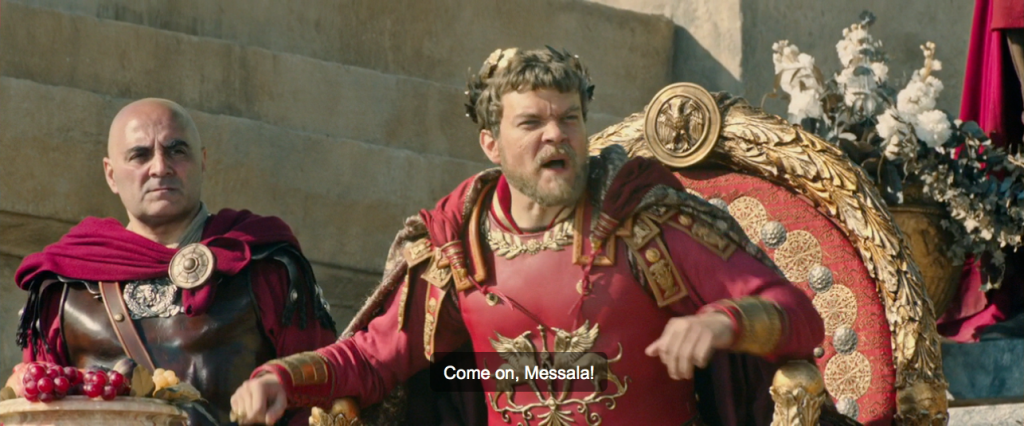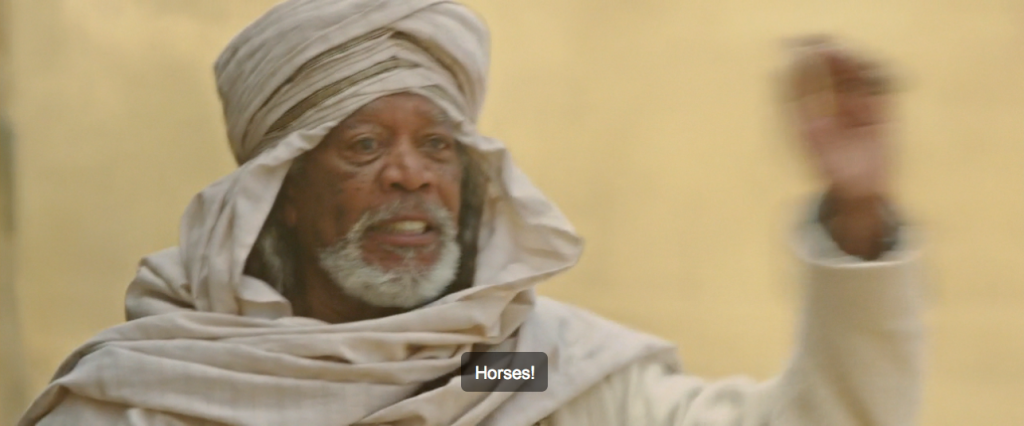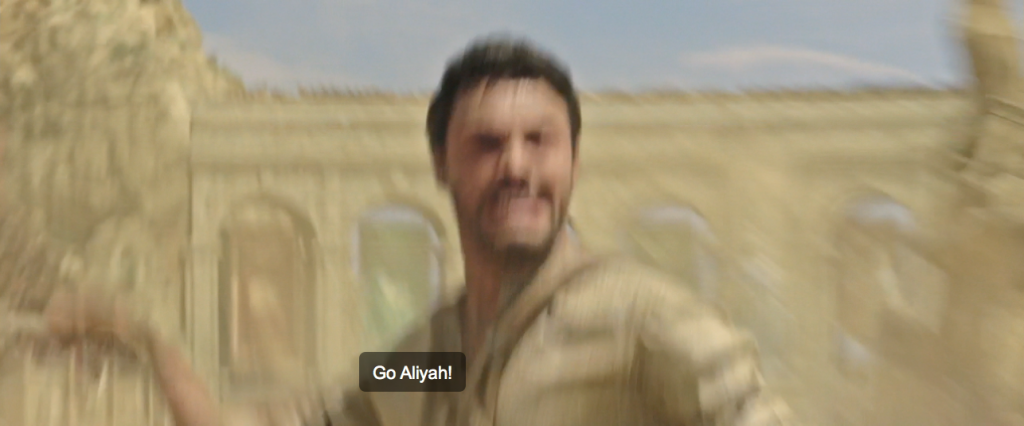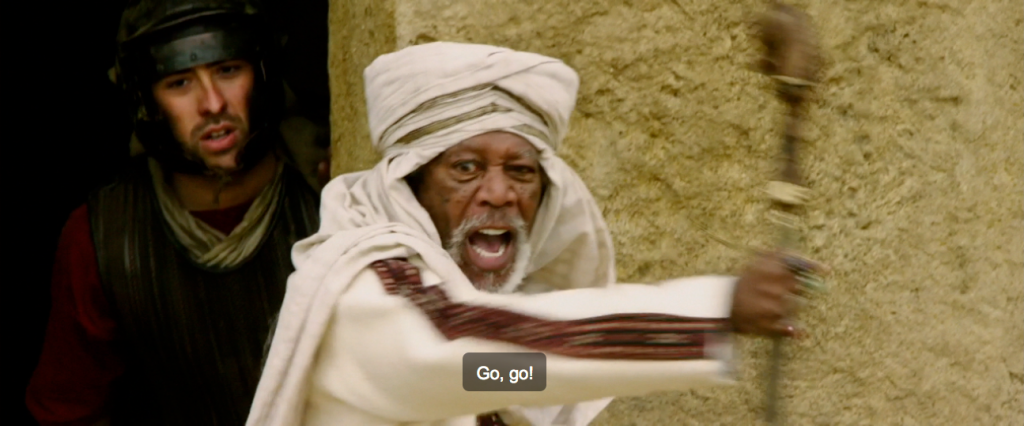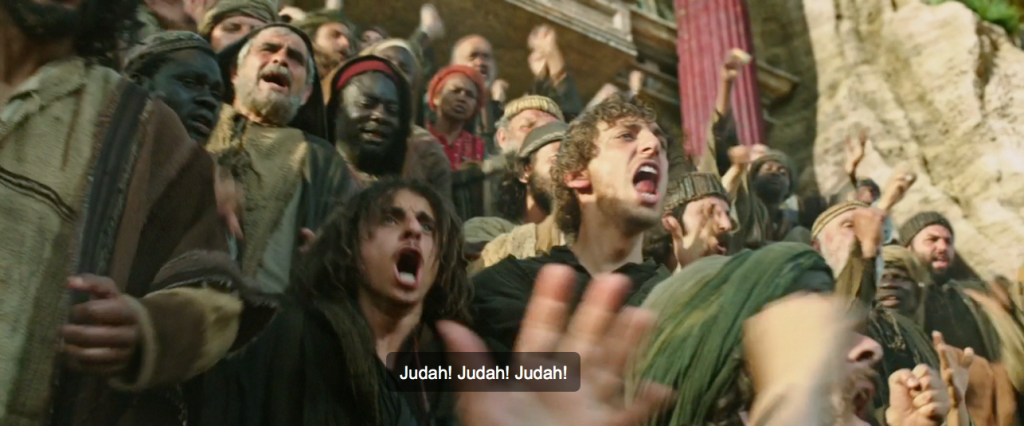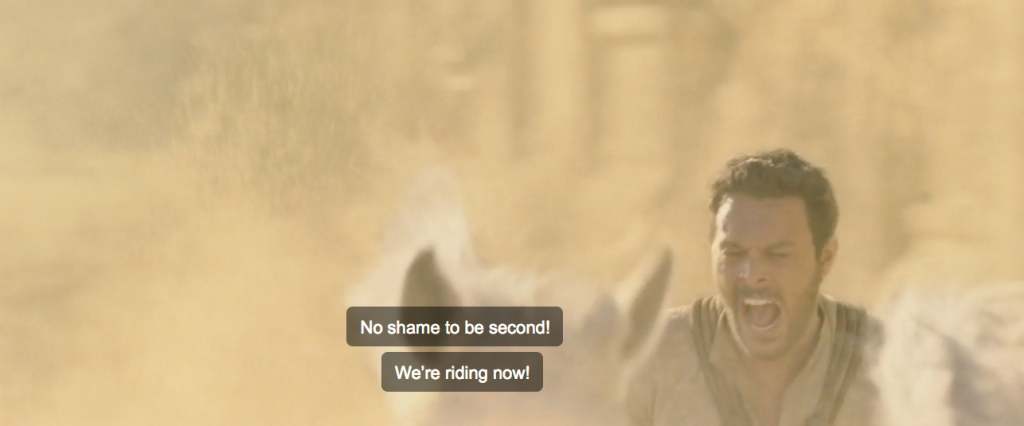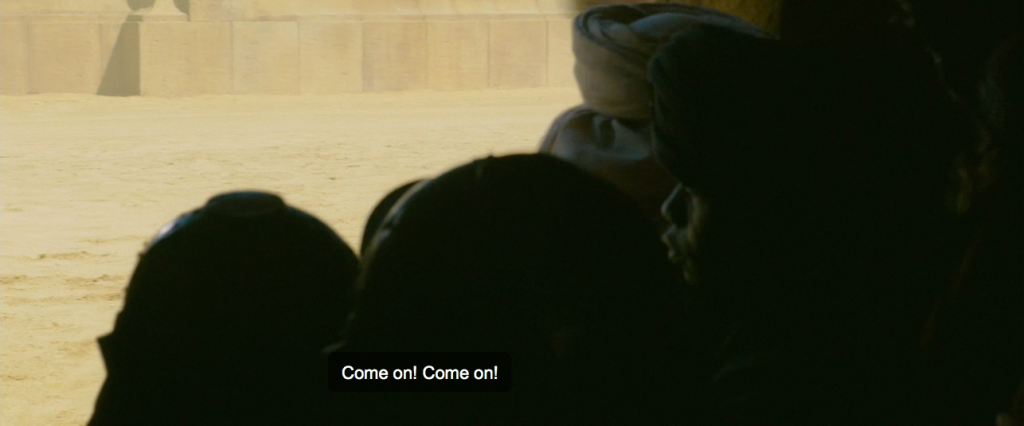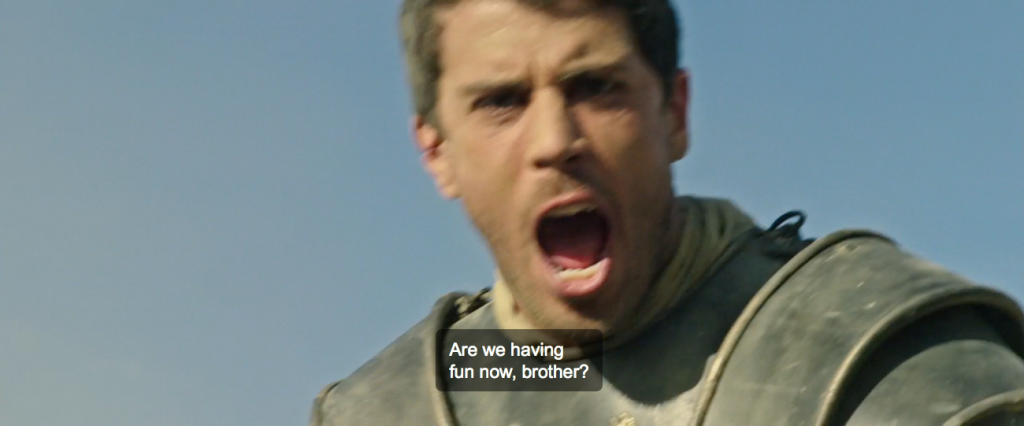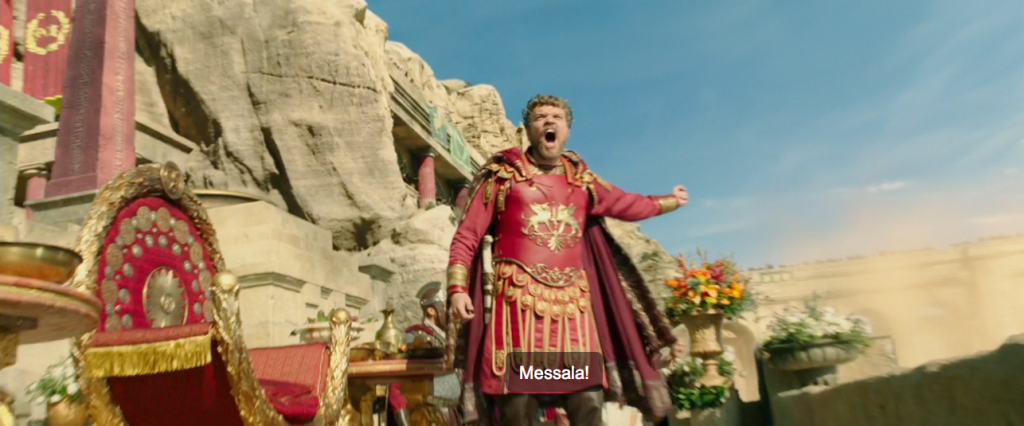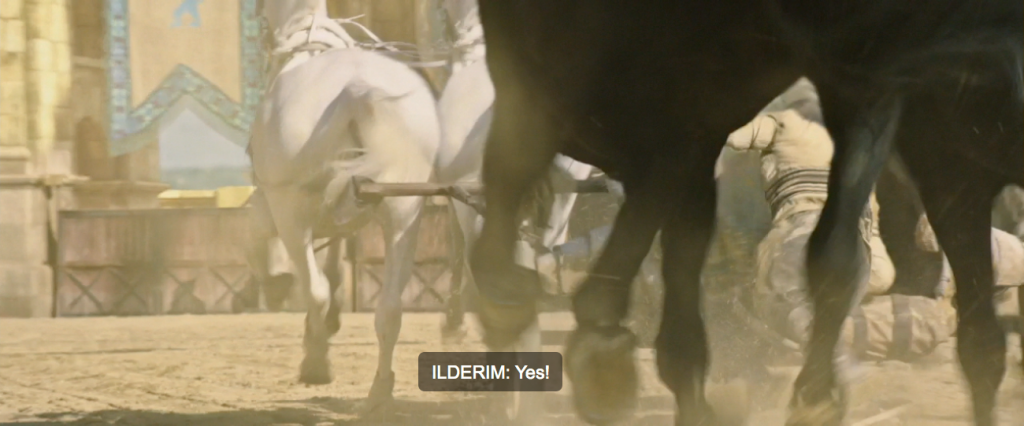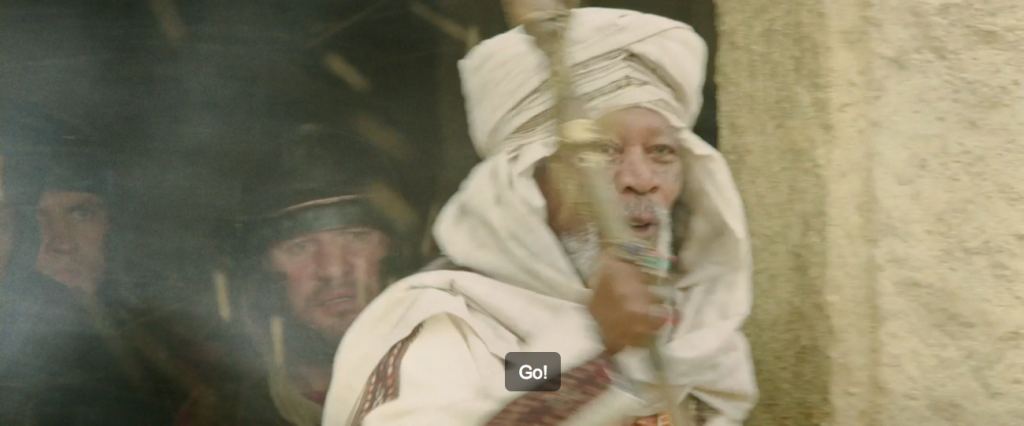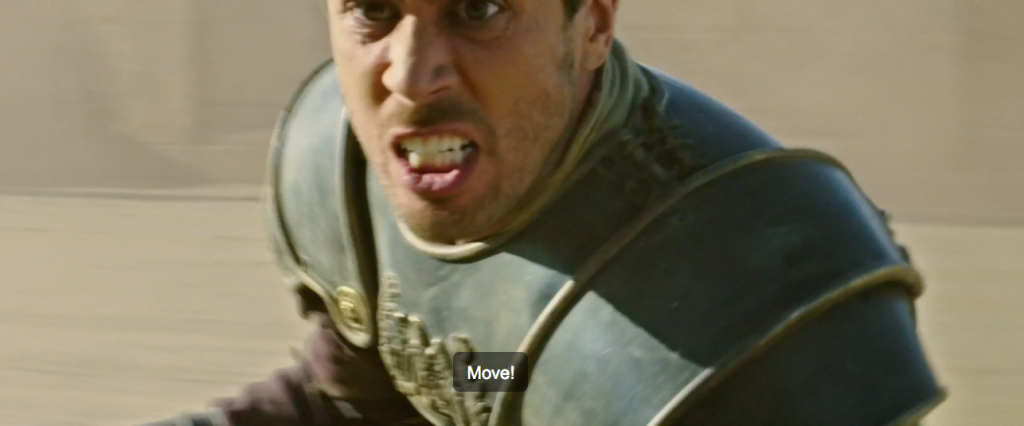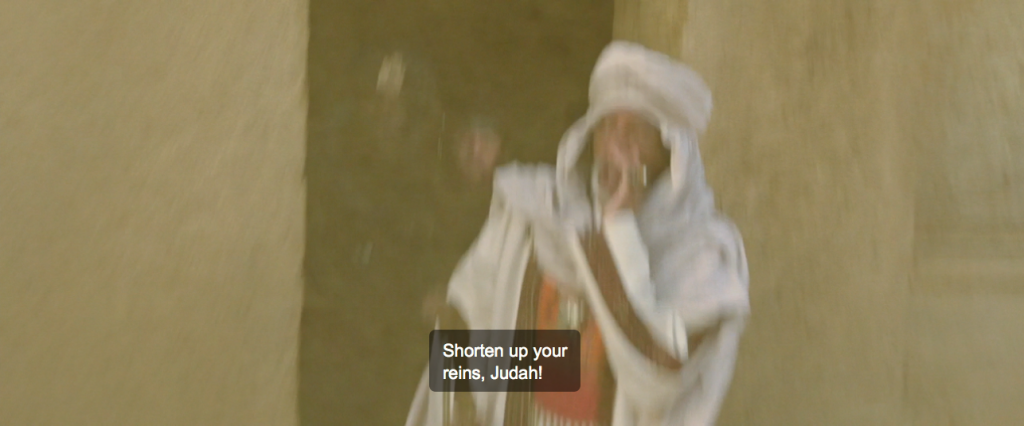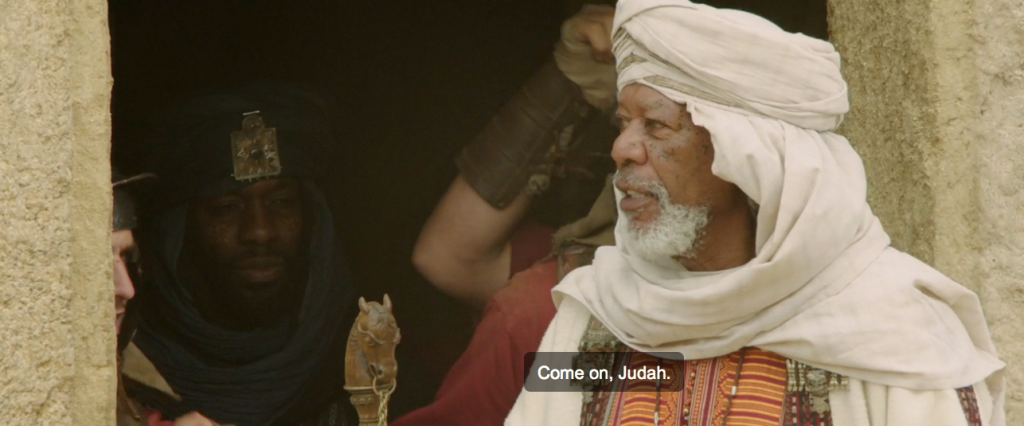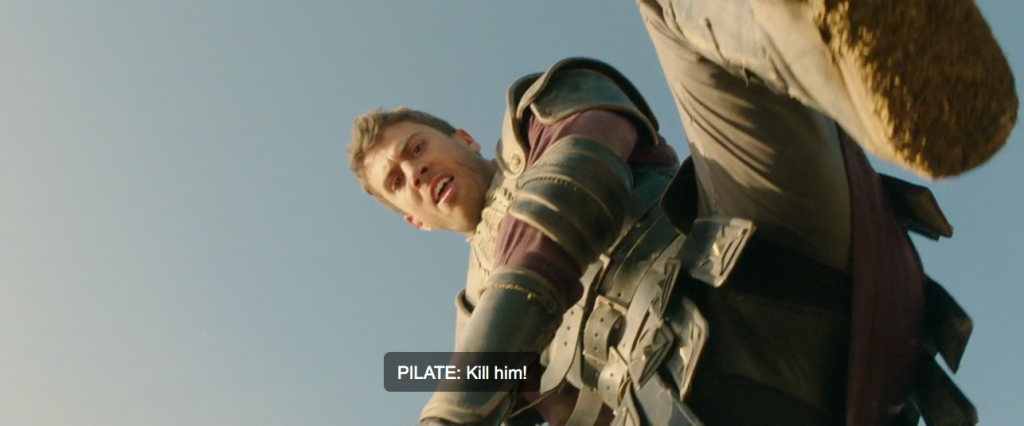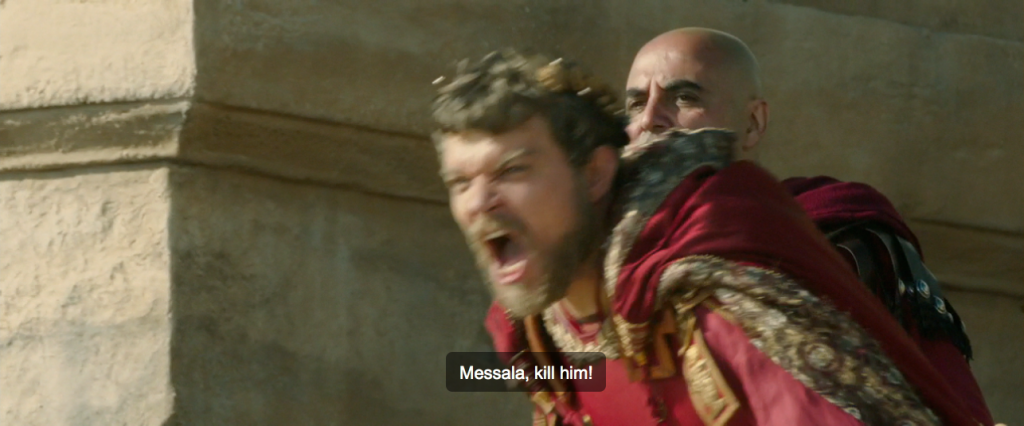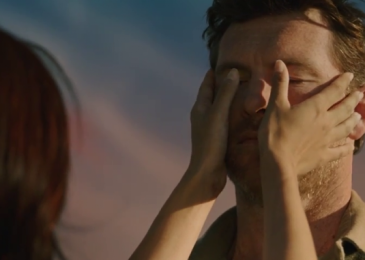There are many problems with Timur Bekmambetov’s remake of Ben-Hur, but one of the more emblematic ones, I think, is the way he insists on adding dialogue to the chariot race. Bekmambetov can’t rely on the thrill of movement alone: instead, he has to pump the soundtrack full of exposition and dull action-movie banter.
How does his film compare to the earlier ones, in this regard?
In the 1925 silent film, you can often see characters’ mouths moving as their chariots fly down the track, but only once does the film put actual dialogue in the title cards, in this exchange just before Messala causes a Greek chariot to crash:
And that’s it.
This dialogue exists primarily to let us know how Messala’s actions fit into his overall strategy; for the rest of the race, the film is content to show running horses, cracking whips, and the facial expressions of our desperate protagonists.
In the 1959 film, the chariot drivers don’t talk to each other at all, and the only intelligible dialogue comes from Judah Ben-Hur’s sponsor Ilderim, who shouts from the stands where none of the racers can hear him:
The 2010 miniseries similarly keeps the dialogue to a minimum. Apart from various grunts, yells of “Whoa!” and the like, the closest it gets to actual dialogue is when Messala runs a charioteer off the track, and the charioteer raises his fist and shouts something that I can’t make out (my copy of this film doesn’t have subtitles):
In the 2016 film, on the other hand, everybody talks during the race.
Ilderim kicks things off by shouting instructions that Judah follows:
The Zealots watching the race talk amongst themselves:
The Egyptian charioteer threatens Judah:
The Persian charioteer yells at Messala in an untranslated language …
… before shouting at him in English:
The same charioteer reaches for his helmet after he is thrown from his chariot:
The soldiers shout at each other as they carry that charioteer off the racetrack:
Ilderim shouts another instruction at Judah, then quietly expresses his approval:
The Egyptian charioteer threatens Judah again:
The “trick” in question? The charioteer blocks Judah’s view of another charioteer who has fallen out of his chariot, until it’s too late to stop Judah from running over him. Once that happens, Ilderim tells the Romans to go rescue that guy:
And so a Roman dies. Meanwhile, the Syrian charioteer threatens to kill Messala:
Pilate does not approve of Messala being on the receiving end of that kind of threat:
Ilderim warns Judah that horses are running in his direction:
The race is down to two people, so Judah gets his horses to catch up to Messala:
Ilderim encourages Judah to speed up, too:
The crowd, including the Zealots, starts chanting Judah’s name:
Judah yells at Messala as he passes him:
Someone shouts “Come on! Come on!”:
Messala yells at Judah as Judah is being dragged behind his chariot:
Pilate yells at Messala:
Ilderim cheers as Judah climbs back into his chariot:
Messala yells at Judah:
Ilderim shouts instructions to Judah, which Judah follows:
Ilderim offers a quieter word of encouragement:
Pilate tells Messala to kill Judah while Judah is hanging out the back of his chariot:
And then Messala’s chariot crashes, Judah crosses the finish line, and the race is over.
The dialogue in this sequence serves two basic functions:
First, it gives Ilderim a greater role in the chariot race — not just as a member of the crowd, but as a coach who gives Judah constant feedback and instructions. (The Judah of this film is an utter novice who isn’t even trained by Ilderim until a few days before the race; in the other films Judah is a famous charioteer long before he meets Ilderim.) Ilderim even tells the Romans and others what to do when a wounded charioteer needs to be removed from the track. Ilderim is in charge.
The extra dialogue also makes all of the charioteers look rather bloodthirsty. It is not only Messala who tries to kill Judah, but the Greek as well. And Messala himself has to worry about threats from the Syrian. On one level, this is part of a general trend towards savagery in recent Bible movies. But it also reflects the way this film makes Judah and Messala more equally sympathetic than they were in previous films: here they are both attacked by other charioteers; and whereas Judah gets emotional support from Ilderim, Messala is pressured by Pilate to prove himself as a Roman, the same way he has been pressured by other Romans throughout the movie.
But the main thing all this dialogue does is underscore the film’s banality. There is lots of talk, talk, talk throughout the sequence, and — except for Ilderim’s coaching — none of it really adds to the experience. As with this scene, so with the film.










